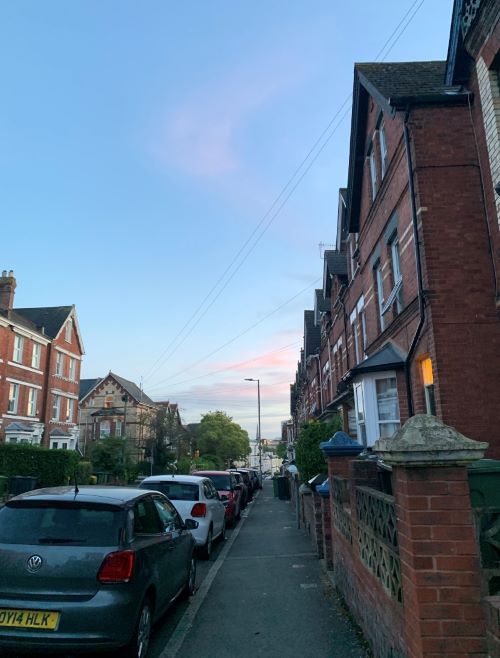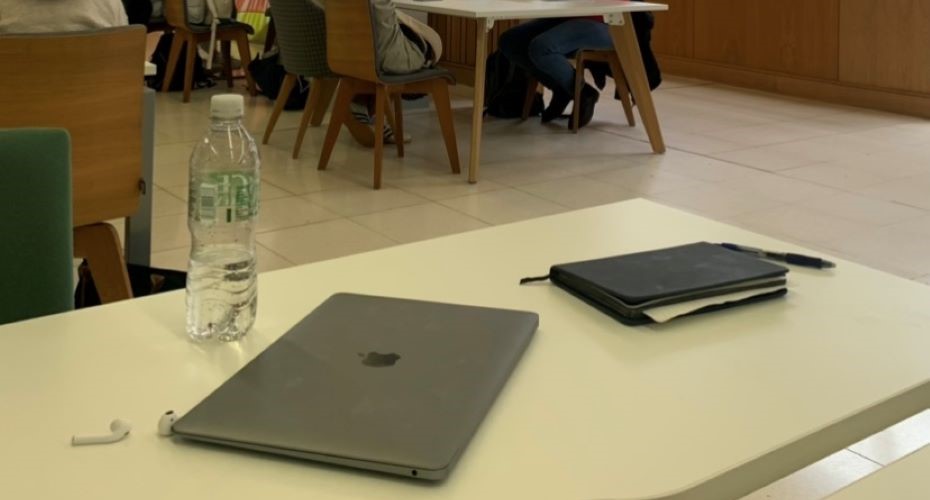Hi everyone, it’s Amelie, and today I’ll be sharing things that I found in my degree that have helped with my employment prospects. When I started my Communications degree in 2021, I was the first year to do it. Although initially hesitant to enroll myself onto a course that was starting from a blank slate, I soon realised, upon starting, that being new gave the course an exciting, fresh perspective – particularly when it came to employability. In this blog post, I’ll talk a little bit about how my degree focused on making me an employable person, and although this is of course specific to my experience of doing Communications, I’ve also heard from others on different programmes that the University seems to be increasingly good at making its students stand out to employers.
Practical experience
One of the first instances of when I realised my degree leaned away from your typical stuffy essay assignments was in my second term of first year. This was when I did the module ‘Communications Challenges’, where almost the entire module was centred around being taught how to and then making our own campaign, which would then be assessed as most of that module’s final assessment. We were split into groups and made an Instagram account for the campaign we came up with, using that page to post the content we were asked to make: a podcast, a short video, and infographics. Each group member rotated around roles for each piece, taking the lead for one. It was a really valuable experience in collaborating with others in the same way you would in a workplace, and also taught very necessary skills (for our degree) in content and campaign creation. It was also fun to do: I hadn’t expected to be involved with a podcast at university! Besides being assessed on this, we were also then asked to do an independent blog to accompany it, which helped us to reflect on what we had gained from the experience.
Both the campaign and blog were made live on the internet and – if I were to dig deep enough – I could still find them. While I’m not sure that they would be my first port of call to demonstrate my skills to employers now, it was certainly useful at the time for getting work experience.
On the topic of work experience, one of my second-year modules was particularly insightful on that front. A module, compulsory to all Communications students, entitled ‘Communications in the Workplace’ asked us to go out and find a placement for a week or two, and then come back and write about our experiences in relation to theory. Of course, there were exceptions made for those who were not able to get work experience – some people wrote on holiday jobs – but the main aim was that we would get some experience in our field of interest, and have it contribute to the way we were assessed.

I was lucky enough to land a couple of weeks in an events and marketing firm in London, where I not only worked a 9-5 job in a field I was interested in but commuted and sometimes stayed in hotels on my own for the first time. I feel like it is obvious as to why the module was so incredibly beneficial, but to put it simply, it forced everyone to have at least one experience to put on their CV, while also having the benefit of counting towards something at university. Also, for me and I’m sure many others, it gave a bearing on whether we really wanted careers in those fields. While many courses offer a year in industry – which is no doubt even more valuable – this module was a really good way to get everybody exposed to a workplace, and perhaps help them decide if a year out at work was a good option for them.
A dissertation alternative
As I continued my course, the untraditional modes of assessment expanded even further beyond what I have already described. I have just completed my final year at university, and I am beyond elated to say I did not do a dissertation! That word had been pushed firmly into the back of my mind since I had my course breakdown in the first week of university, but with each term that went by, it niggled itself closer into the forefront of my mind, so you can imagine how I felt when I found out that there was an option to do something else. This ‘something else’ was a Practical Research Project – which basically could take the form of anything as long as it was relevant to the degree and used thorough research. I did a portfolio of journalism which was posted onto a website, but there was a real mix of interpretations from others. Although I had hesitancy over whether I should stick with the well-trodden dissertation, I ultimately knew that this would be the right thing for me. I was able to tailor my portfolio very specifically to my career interests and use the format of a website as a way to showcase my work to potential employers. If my grade for the project goes well, it will be one of the first things I send to employers when I begin looking for jobs, and I feel I wouldn’t have had the same possibility with a dissertation. I have also been able to do portfolio assessments as I have gone along through my degree, which not only helped with my decision when it came to my final assessment, but also once again helped to give me a better grasp on the kind of writing you would do in a workplace.

Exciting and varied module options
Another reason I feel my degree has made me more employable is the diverse range of modules I have taken, due to the co-listed module choices being so extensive. Now, don’t get me wrong, I think that this is mainly because – as the first cohort of Communications students – we did not have as many lecturers who could teach Communications modules for us as are part of the course now. However, this was almost a blessing in disguise, and I’d definitely recommend new students think about incorporating modules from different departments into their degree. Since my time at Exeter, I have taken modules in politics, film, English, business, visual media and publishing (and subsequently got to know a lot of different referencing styles). This has really helped me to discover what I like and don’t like, what I’m good at and not so good at, and most importantly given me the opportunity to expand my mindset and knowledge. Even though I have not necessarily taken to all of the different topics I have done, at the very least I would like to think it makes me a more rounded person – and gives me something to talk about at dinner parties.

Had I not done my degree, I wouldn’t have had the opportunity to gain a base level knowledge on so many things, and it is this I think that makes me look more employable. For example, while I absolutely cannot say I am an expert on publishing after 12 weeks of learning about it, the module asked me to do group presentations, and taught me about negotiating and visual marketing – all transferable skills that, had I not taken that module, I wouldn’t have learnt. The variation in module options has also kept my degree fresh and interesting, and kept me intellectually on my toes, so not only has it been good for my employment prospects, but also for my own enjoyment of my course.
Work opportunities and updates
Lastly, although this is more tenuously related to my course, my course leaders have been excellent in notifying us of employment or CV enhancing opportunities. I was able to do an internship in 2022 with an influencer and a campaign she founded because I was alerted to it from my course director. More recently, I have been to a PR networking event, and have applied for yet another internship, all because my course leaders have emailed me about them. I’ll get an email every month or so about a new opportunity, and even if they aren’t always for me, it’s really nice to see them so I know that the lecturers care about helping me secure a job. All in all, while this is not related to my course content directly, this has been a huge help in building up my CV and once again, I would not have so many employment experiences had I not received those emails.
While a lot of this is pretty specific to my course, I am confident that the University of Exeter has a clear focus on all its students’ employment prospects. This is especially comforting as I come to the conclusion of my time at the university, knowing that I have been supported to give myself the best chance of securing a job, and that I have evidence of what I have done in my studies to show employers in the form of online portfolios. Leaving university is no doubt a time of change and fear, but with the help I have received, I’m able to embrace those feelings and take the leap into graduate life.

